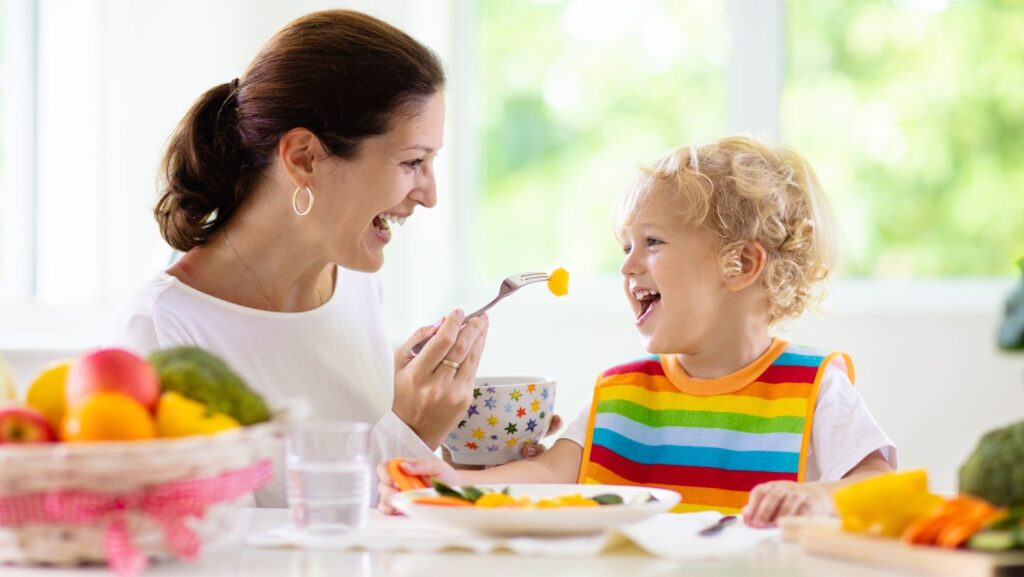If there’s one thing every parent learns quickly, it’s that kids thrive on routine. From bedtime stories to morning cuddles, the little rhythms of daily life give children a sense of security. And when it comes to feeding, routines play an even bigger role: they’re not just about nutrition, they’re about comfort, connection, and teaching healthy habits that last a lifetime.
The good news? You don’t have to be perfect to set up a routine that works. With a little consistency and the right resources, you can create feeding habits that grow with your child and give them a strong foundation for the future.
The Baby Stage: Finding Your Groove
Feeding a newborn can feel like an endless cycle of bottles, burping, and diaper changes. And honestly? It kind of is. But those early weeks are where you start building trust with your baby. When they learn that you’ll respond to their hunger cues, they feel safe, and that security sets the tone for everything else.
If you’re formula-feeding or supplementing, having a baby feeding guide can take some of the guesswork out. It’s not about following it to the letter, but about having a reliable reference as you figure out your little one’s rhythm. Every baby is different, but knowing the “typical” patterns can help you feel more confident.
Solids: Messy, Fun, and So Important
Around six months, most babies are ready to try solids. And yes, it’s going to be messy. But this stage is more than just a photo opportunity with mashed carrots smeared everywhere. It’s your child’s first chance to explore flavors, textures, and mealtime routines that will stick with them as they grow.
The trick? Keep it simple and consistent. Try introducing solids at around the same time every day, pair them with milk feeds, and let your baby explore without too much pressure. Remember, these early meals are about learning, not perfection.
Toddlers: Independence at the Table
Toddlers are famous for having Opinions—with a capital O. They want to do things “by myself,” and mealtime is no exception. This is where your routines become a real lifesaver.
Regular meal and snack times help avoid constant grazing (and meltdowns), and sitting down together, even if it’s just for a quick snack, teaches that eating is a shared family activity. Give them small choices: “Do you want apple slices or banana?” That way, they feel independent without running the show.
Why Routines Matter Beyond Nutrition

Here’s the part many parents don’t realize: feeding routines don’t just shape eating habits. They actually help with learning too. A child who feels secure and knows what to expect is better able to focus, explore, and absorb new skills.
Think about it this way; when your toddler isn’t stressed about when their next meal is coming, they have the mental space to play, experiment, and learn. That same sense of consistency and curiosity will support them later in school, even in big areas like STEM education. A child who has grown up with dependable routines and opportunities to explore is more likely to feel confident diving into problem-solving, discovery, and critical thinking.
So, in a way, every spoonful and snack break is laying the groundwork for bigger things to come.
Growing With Your Child
The beauty of routines is that they aren’t fixed forever, they evolve with your child. What starts as late-night bottle feeds shifts into family dinners where your toddler learns to pass the bread basket. Later, those meals might turn into conversations about their day at school or even big ideas about the world.
At every stage, it’s less about sticking to rigid rules and more about finding a rhythm that works for your family. A little consistency, a little flexibility, and a lot of love—that’s the recipe for success.
And when you need a hand? Don’t be afraid to lean on resources like a baby feeding guide to support you along the way.
Healthy feeding routines aren’t just about food, they’re about building trust, fostering independence, and creating a sense of stability that helps kids thrive. The routines you set today will grow with your child, shaping not just their relationship with food, but their ability to learn, explore, and feel confident in the world.
So take it one meal at a time, keep it consistent, and don’t stress about being perfect. Your child doesn’t need perfect, they just need you.



